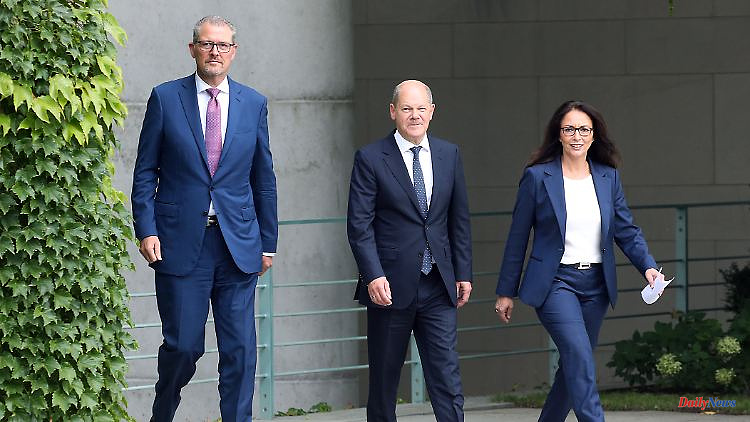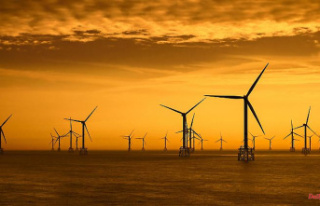When energy prices shoot up and so do consumer prices, Olaf Scholz calls the concerted action. Nine months later, the round is quietly coming to an end. The chancellor's office thinks the worst is over. The grief in the unions is apparently limited.
One of Olaf Scholz's most used vocabulary words last year was the verb "underhook". Side by side and standing firmly together, Germany should stride through the energy price and inflation crisis, said the Federal Chancellor. He wanted to orchestrate the hooking himself and, with a great deal of fanfare, launched the "Concerted Action". At the beginning of July, Yasmin Fahimi, head of the German Trade Union Confederation (DGB), and Rainer Dulger, President of the Federal Association of German Employers' Associations (BDA), as well as other representatives of trade unions and business, met in the Chancellery. Afterwards, Scholz told journalists: "We as a country will only get through this crisis well if we join hands and if we agree on solutions together." From the point of view of the federal government, it worked: it suspended the concerted action.
In the federal press conference, a government spokesman confirmed a report by the "Handelsblatt" that a meeting scheduled for March had been canceled. Germany got through autumn and winter well with energy price support, direct payments and the tax-free inflation premium. "This is good news, so we can suspend the concerted action," said Wolfgang Büchner in the absence of Scholz's spokesman Steffen Hebestreit. Hebestreit and his boss were still on the return flight from India at the time.
Büchner did not rule out that concerted action would be reactivated should the situation require it. However, it was intended to cushion the consequences of the "extreme swings" in inflation. That was successful. In the autumn, the rate of inflation had meanwhile been more than 10 percent. The concerted action was launched after inflation had reached 7.6 percent in June. For the current year, the Federal Ministry of Finance expects 6 percent inflation. In 2024, inflation is expected to flatten further.
According to Büchner, the Federal Chancellery is aware that not all problems have been solved. "Of course, good economic and financial policies are still needed to keep inflation falling." But: "We got through this winter well and we got off to a good start this year, so we see the situation in such a way that these measures can be suspended." A total of three meetings were held with the top representatives of the social partners.
The main result of the concerted action was that employers could and can pay their employees up to 3000 euros without this inflation premium being reduced by taxes or social security contributions. Many employers have made use of this since October 26, but by no means all. The premiums also vary greatly. There is no overview of how much the companies paid their employees. Employer and employee representatives were also involved in the development of the energy price brake.
It is unclear whether the associations involved were contacted before the March meeting was canceled or whether they were only informed of the decision. "I think that's done in accordance with security, with the social partners," said Büchner. Verdi boss Frank Werneke told the "Handelsblatt": It was difficult to identify a clear objective for the concerted action, so he welcomes its suspension. "The Chancellery is definitely not the right place for collective bargaining - not even in the broader sense." A reaction from the German Trade Union Confederation (DGB) is still pending.












